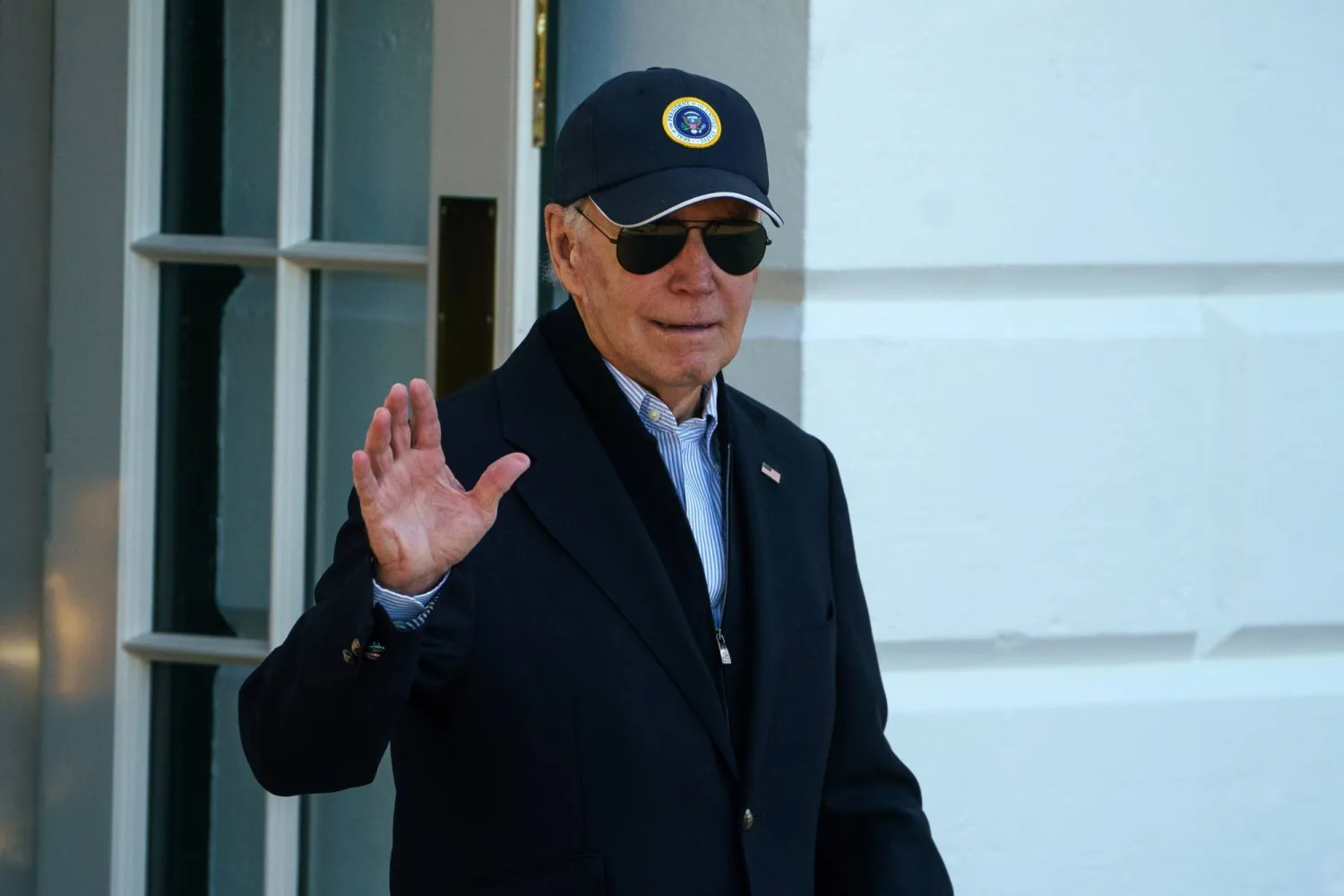US President Joe Biden and European leaders meeting during his farewell visit to Germany on Friday were expected to renew calls for a Gaza ceasefire after Israel said it killed Hamas leader Yahya Sinwar.
While still on Air Force One, Biden hailed the death of the man Israel blames for the October 7 attack as a "good day", saying it removed a key obstacle to a Gaza ceasefire and hostage deal, AFP reported.
Biden and the German, British and French leaders were also set to pledge their sustained military support for Ukraine as it fights off Russia's invasion.
Biden's flying 24-hour visit comes as Ukraine faces a third grueling winter at war, and a day after President Volodymyr Zelensky presented his "victory plan" to the European Union and NATO in Brussels.
Biden arrived late Thursday for the Berlin visit, just weeks ahead of a US election in which allies are nervously eyeing a possible return of Donald Trump to the White House.
On Friday Biden is to hold talks with German Chancellor Olaf Scholz, French President Emmanuel Macron and British Prime Minister Keir Starmer.
Trump, who during his last term berated NATO allies, has also opposed the level of US military support for Ukraine and would be expected to soften US criticism of Israel in its wars in Gaza and Lebanon.
Biden's meetings in Berlin were expected to address the conflict pitting Israel against Hamas and its Hezbollah allies, including the risk of a wider escalation with Iran.
Biden said Thursday he would "congratulate" Israeli Prime Minister Benjamin Netanyahu but also "discuss the pathway" for securing the release of hostages and "ending this war once and for all".
"There is now the opportunity for a 'day after' in Gaza without Hamas in power, and for a political settlement that provides a better future for Israelis and Palestinians alike," he said.
Scholz, speaking in Brussels Thursday, said "there is a proposal from President Biden and others as to what such a ceasefire could look like and we fully support that".
'Stand with Ukraine'
Now in his last months in office, 81-year-old Biden was originally due in Germany last week for a four-day state visit that would have included a major Ukraine defense meeting with Zelensky.
After canceling that trip to coordinate the response to Hurricane Milton, Biden was at pains to make his valedictory Germany trip nonetheless, with a stripped-down program squeezed into a one-day visit.
Traditionally strong US-German relations soured during the Trump presidency, and Scholz told parliament Thursday that Biden had overseen "an incredible improvement in cooperation".
Biden was to start his visit with a meeting from 0800 GMT with President Frank-Walter Steinmeier, who was to present him with Germany's highest honor, the Grand Cross of the Order of Merit.
Steinmeier's office said this was to recognize Biden's "services to German-American friendship and the transatlantic alliance... in particular in the face of Russian aggression against Ukraine".
Zelensky's plan includes a request for an immediate invitation for Kyiv to join NATO and the lifting of restrictions by Western allies on using long-range weapons.
A senior US administration official told AFP ahead of Biden's visit that there was "not consensus at this time" on a NATO invitation.
But the official pointed to a summit of the alliance in July where member states had "affirmed that Ukraine is on an irreversible path to membership".
Despite recent Russian battlefield gains, the US official said that "time is, in fact, on Ukraine's side" and vowed: "We will stand with Ukraine and give it what it needs to prevail."
Macron said at the end of EU summit talks in Brussels that France supported Zelensky's request that Ukraine be regularly invited to NATO summits.
As for the broader question of security guarantees wanted by Kyiv, Macron said: "This is what we will have to discuss" at Friday's talks.
The United States has been by far the biggest supplier of military aid to Ukraine since the 2022 Russian invasion, followed by Germany.
Jake Sullivan, Biden's national security advisor, said Biden was seeking "to make our commitment to Ukraine sustainable and institutionalized for the long term".
Biden, Allies in Berlin to Renew Gaza Truce Call After Hamas Leader Killed

US President Joe Biden leaves the White House to board Marine One, Washington, DC, USA, 17 October 2024. EPA/WILL OLIVER

Biden, Allies in Berlin to Renew Gaza Truce Call After Hamas Leader Killed

US President Joe Biden leaves the White House to board Marine One, Washington, DC, USA, 17 October 2024. EPA/WILL OLIVER
لم تشترك بعد
انشئ حساباً خاصاً بك لتحصل على أخبار مخصصة لك ولتتمتع بخاصية حفظ المقالات وتتلقى نشراتنا البريدية المتنوعة







